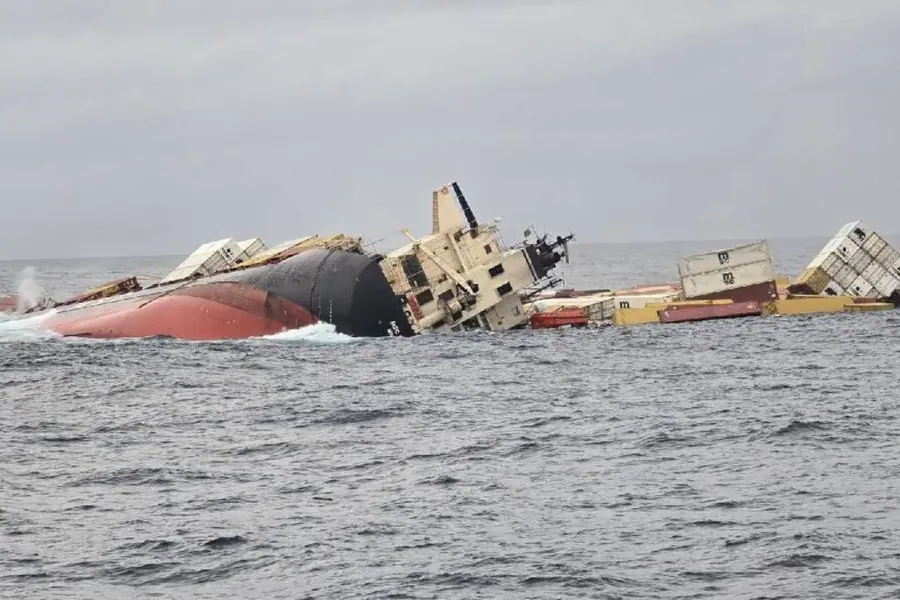
Ship ‘Arrested’ After Kerala Claims Damages: Understanding Admiralty Suits in India
For CLAT 2026 Aspirants | Prepared by CLAT Gurukul | July 2025
Introduction
In a significant maritime legal development, the Kerala High Court has conditionally arrested the Liberian container ship MSC Akiketa II anchored at Vizhinjam port. This action came after the Kerala government filed an admiralty suit claiming environmental and economic damages caused by the sinking of the MSC ELSA III, another ship owned by the same group. The government is seeking ₹9.531 crore in damages.
This news is especially important for CLAT Current Affairs 2026 because it involves a blend of environmental law, international maritime law, High Court jurisdiction, and civil procedure—topics that have a high probability of being tested in CLAT UG/PG. The case also brings into focus how admiralty suits, a niche area in Indian jurisprudence, operate in relation to environmental damage and compensation claims.
For aspirants preparing with the best online coaching for CLAT or online coaching for CLAT, this case offers a goldmine for passage-based comprehension, legal reasoning, and current affairs sections.
Why in News?
- The Kerala High Court conditionally ordered the arrest of the Liberian ship MSC Akiketa II.
- This action was triggered by a government claim for compensation of ₹9.531 crore.
- The damages relate to the sinking of MSC ELSA III off Kerala’s coast in May 2025.
- The case was filed under the Admiralty (Jurisdiction and Settlement of Maritime Claims) Act, 2017.
- This is a notable example of how High Courts exercise maritime jurisdiction in India.
Point-Wise Summary of the Article
- The Incident
- MSC ELSA III sank on May 25, 2025, 25 km southwest of Alappuzha, Kerala.
- The ship carried over 600 containers, including plastic pellets, hazardous chemicals, and diesel, which spilled into the sea.
- The Legal Action
- Kerala filed an admiralty suit in the Kerala High Court.
- The suit named Mediterranean Shipping Company as the respondent.
- MSC Akiketa II (a vessel owned by the same group) was docked at Vizhinjam and thus under Indian jurisdiction.
- Arrest of Ship Explained
- The court conditionally arrested the MSC Akiketa II to secure Kerala’s maritime claim.
- The ship will remain detained unless ₹9.531 crore is deposited by the owner or equivalent security is provided.
- Grounds of Compensation
- The state has sought damages for:
- Environmental degradation: ₹8.626 crore
- Remediation costs: ₹0.378 crore
- Economic losses to fishermen: ₹0.526 crore
- The state has sought damages for:
- Basis in Law
- The claim was made under Section 4 of the Admiralty Act, 2017.
- This allows High Courts to exercise jurisdiction in claims arising from damage to environment or property by a ship.
- Jurisdiction of High Courts
- Bombay, Madras, Calcutta, Andhra Pradesh, Telangana, Odisha, Karnataka, and Kerala High Courts have admiralty jurisdiction.
- Jurisdiction includes territorial waters up to 12 nautical miles, plus seabed and airspace.
- Other Applicable Laws
- Merchant Shipping Act, 1958: Makes shipowners liable for oil pollution.
- Environmental Protection Act, 1986: Empowers action against polluters.
- National Green Tribunal (NGT): Can be approached for environmental compensation.
- Precedent Cited
- In 2016, NGT ordered ₹100 crore compensation from a Panama-based shipping company for an oil spill off Mumbai (MV Rak).
- Court’s Observations
- Pollution was confirmed from 643 containers in the sea.
- Pollution was attributed to both the sunken ship and the owner’s negligence.
- Compensation computed per CPCB (Central Pollution Control Board) guidelines.
- Importance of the Ruling
- Shows how Indian courts enforce environmental accountability under international maritime law.
- Reaffirms India’s commitment to ecological protection and marine law enforcement.
Notes and Explanation of Peculiar Legal Terms
- Admiralty Suit
A legal proceeding concerning maritime disputes, including damage to ships, cargo, environment, or personal injury at sea.
- Ship Arrest
A legal process where a court detains a ship to secure a claim against its owner, often used in admiralty suits.
- Admiralty (Jurisdiction and Settlement of Maritime Claims) Act, 2017
Indian legislation replacing colonial laws to govern maritime claims, giving jurisdiction to specified High Courts.
- Territorial Waters
Maritime area up to 12 nautical miles from the coastline, where the Indian government and courts exercise jurisdiction.
- CPCB Guidelines
Environmental standards issued by the Central Pollution Control Board for calculating pollution-related damages and penalties.
Legal and Environmental Significance
- The case underscores the legal liability of foreign-owned ships for pollution in Indian waters.
- Reasserts the ability of state governments to use Indian courts and international maritime law for compensation.
- Reinforces India’s compliance with the MARPOL Convention, governing marine pollution globally.
Relevance for CLAT 2026
This case can appear in the following CLAT formats:
Section | Possible Question Type |
Legal Reasoning | Statutory interpretation under Admiralty Act |
Current Affairs | “Why was MSC Akiketa II detained in 2025?” |
Reading Comprehension | Based on pollution and admiralty jurisdiction |
Legal GK | High Court maritime powers and environmental claims |
Practice MCQ
Q: Under which Act can the Kerala High Court exercise jurisdiction in a maritime dispute involving environmental damage?
- The Merchant Shipping Act, 1958
B. The Environment Protection Act, 1986
C. The Admiralty (Jurisdiction and Settlement of Maritime Claims) Act, 2017
D. The Law of the Sea Convention
Correct Answer: C
Explanation: Section 4 of the 2017 Admiralty Act specifically allows High Courts to claim jurisdiction in such matters.
Conclusion
The arrest of the MSC Akiketa II is a landmark event blending domestic law, international law, and environmental protection. For CLAT 2026 aspirants, this issue not only offers rich legal insights but also a real-world application of maritime law—a niche but increasingly relevant area. With shipping accidents and environmental litigation on the rise, topics like these will remain critical for both exams and legal awareness.




